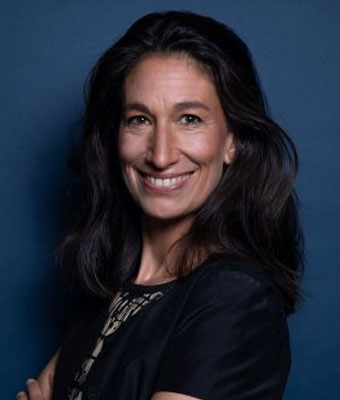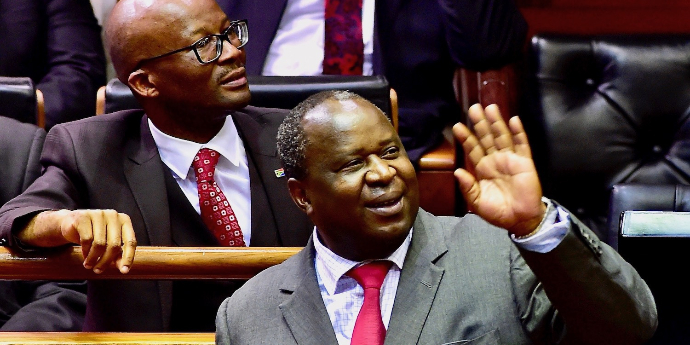Postgraduate Diploma in Development Finance
Leveraging finance for sustainable development in emerging economies
Building capacity to mobilize & align finance for development and sustainability.
Building capacity to mobilize & align finance for development and sustainability.
Intensifying societal pressure, changing expectations, and the emergence of new types of risks are reshaping the role of development finance. The challenge is to mobilise and align finance for sustainable development, and to develop capacity to build inclusive and resilient economies.
The Postgraduate Diploma in Development Finance is a specialised programme designed for those interested in finance as a lever for sustainable development.
The programme is delivered in six courses organised around four main objectives.
- Provide a foundational understanding of sustainable development and financial systems in emerging markets.
- Build adaptive leadership capabilities based on a systems understanding of risks and opportunities in development finance.
- Provide insights into core risk management practices in development finance.
- Build capacity for catalytic impact through environmental finance and sustainable investment approaches, trade finance mechanisms, as well as public-private and cross-sectorial partnerships.
* Application & Course fees are provisional for 2026, and are subject to annual UCT council approval. If you would like more information on fees for this programme, click here.
uct gsb PGDIP IN DEVLOPMENT FINANCE overview
Learn more about the annual term dates for the UCT GSB PGDip in Development Finance programme. The UCT GSB PGDip in Development Finance comprises six compulsory courses over a 9 month period. Learn more about the UCT GSB PGDip in Development Finance. Learn more about which attributes and qualifications are required for the UCT GSB PGDip in Development Finance. A step-by-step guide on how to apply for the UCT GSB PGDip in Development Finance programme. The UCT GSB PGDip in Development Finance curriculum is made up of six compulsory courses. Read more on the Postgraduate Diploma in Development Finance courses. The UCT GSB is committed to broadening access to postgraduate education through funding and scholarship opportunities. Explore funding options available to PGDip candidates.
INNOVATIVE TEACHING
Our teaching, learning and research is directed towards building a more economically prosperous, equitable and integrated continent
Teaching on the Postgraduate Diploma in Development Finance draws heavily on case study analysis with minimal exploration of theoretical concepts.
It provides those who work in, or are intending to work in, development finance institutions or support organisations, government or the financial sector a thorough understanding of the field.
What our students say
Learn with the best
Our Internationally acclaimed researchers and teachers are all dedicated and gifted individuals who contribute directly to UCT GSB's reputation of excellence.

Programme Director


Head: Recruitment and Admissions
FREQUENTLY ASKED QUESTIONS
It is ideal for graduates or professionals aiming to work in financial institutions, government or NGOs promoting sustainable development and resilience in emerging markets.
Key takeouts of the programme:
- Gain critical skills to design and implement development projects that provide optimal and sustainable outcomes
- Acquire the ability to shape policies, programmes or innovations that catalyse finance for impact
- Develop your leadership skills – this PGDip includes a module on adaptive leadership
- Invest in your career by making contact with industry professionals and developing an extended network of like-minded peers.
Three application cycles run between 1 May 2025 - 15 December 2025
- Early application for early decision: 1 May 2025 – 30 August 2025
- General application: 1 September 2025 – 15 November 2025
- Late application: 16 November – 15 February (if places are still available)
Early application are considered on a rolling basis, while all general application are considered at the closing date of the general application period. Late applications will only be open if there are places still available on the programme.
The programme has been designed to take into account the needs and constraints of working professionals, combining intensive in-person teaching over short periods (at the beginning and the end of the programme) with online classes in the late afternoon throughout the year. Course require preparation ahead of time, group work and the submission of assignments.
- First module: 13 – 24 April 2026 (10 full working day) in person.
- Second module: 19 May – 21 September 2026 online afternoon classes scheduled from 16:00 – 19:15 every Tuesday and Thursday; and one Wednesday per month.
- Third module: 5 – 10 October 2026 (6 consecutive full days) in person.
Once you graduate from the UCT GSB you will join our alumni network which is a dynamic forum that comprises more than 23 000 past UCT GSB students in 68 countries worldwide. Many of the UCT GSB’s alumni hold key positions in top companies or have started their own successful businesses. Alumni play a vital role in supporting and encouraging more recent graduates to follow in their footsteps and UCT GSB students who find employment after graduation - particularly internationally - frequently do so through alumni contacts.
Courses are assessed by means of individual assignments, group assignments and class participation.
Students must attend all classes and group meetings (except where excused by the course convener), participate in course activities, and complete all assessments. In order to pass a course, students must obtain a DP as stated in the individual course outline as well as a minimum of 50% on individual assessment components.
TAKE THE FIRST STEP TODAY
Acquire new competencies and move your career to the next level!
Ideas Exchange

Development finance: how it works, where it goes, why it’s needed
Development finance addresses the failures or limitations of financial institutions such as commercial and investment banks. It is the invisible glue that connects public and private financing for projects that have social, economic and environmental outcomes.
Read Article
Export finance and development finance: How Acre Impact Capital is providing a nexus for convergence
Bringing development finance actors together is key to unlocking sustainable infrastructure growth where it is most vital.
Read Article
Trump’s USAID Freeze: A Wake-Up Call for South Africa’s Aid Sector
Kay Lala-Sides, an MPhil Inclusive Innovation graduate and PhD candidate at the UCT Graduate School of Business, examines the impact of Donald Trump’s suspension of USAID funding to South Africa and what it means for local organisations. With donor scrutiny increasing, she highlights the urgent need for stronger governance, strategic fund management, and accountable leadership to ensure aid effectiveness. Can South Africa’s social sector rise to the challenge?
Read Article
Breaking Barriers to Sustainable Finance
From navigating infrastructure challenges to meaningful finance, Bruce Jelley shares his experiences and insights about the MCom in Development Finance at the UCT Graduate School of Business, and how it is reshaping the way South African developers approach sustainability.
Read Article
The Development Activist
From humble beginnings to pioneering public leadership – Pati Kgomo's journey in development finance started with various positions in local government, progressed to position with the Development Bank of Southern Africa, and was honed by a Master’s in Commerce specialising in Development Finance at the UCT Graduate School of Business. Her remarkable achievements are a testament to the power of altruism, education, and a passion for sustainable development.
Read Article
Professor Nicholas Biekpe inducted into prestigious UCT College of Fellows
Induction into the UCT College of Fellows is one of the highest accolades an academic staff member can receive. The fellowship is a reward to academic staff members for their years of commitment and dedication to their work.
Read Article
UCT team wins Oxford Map the System competition
Following their win at the regional final hosted by the University of Cape Town Graduate School of Business (UCT GSB), Finclusive was awarded first place for their project at the University of Oxford’s (UO) Map the System (MTS) competition, which took place from 17 to 20 June.
Read Article
All eyes on DFIs as Africa looks to economic recovery
DFIs can be the catalysts for a stronger and more inclusive continent, but they need to expand their remit to include a focus on SMEs as a key priority.
Read Article
The role of development finance in rebuilding South Africa’s economy post-COVID-19
The global COVID-19 pandemic has set back developing countries especially, but it also offers an opportunity to rethink their development path.
Read Article
Coronavirus - an excuse to downgrade African countries deep into junk
A number of rating agencies have downgraded emerging market economies during the COVID-19 pandemic. Their actions have raised the question: why do so during a crisis?
Read Article
Three winning ways to tackle youth unemployment through development finance
Development finance is an underutilised tool that can be directed towards tackling South Africa’s unacceptably high youth unemployment beyond the remit of mainstream finance.
Read Article
Development Finance Institutions (DFIs) can lead SA’s economic recovery
While government has identified DFIs as a key partner in delivering an economic turnaround — these institutions lack capacity and resources to do their jobs effectively. Fixing this will be a necessity.
Read Article